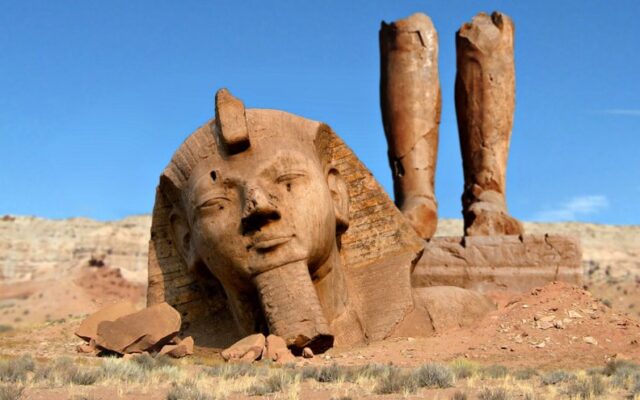A version of this message first appeared on October 26, 2018.
The trees once went out to anoint a king over themselves. So, they said to the olive tree, ‘Reign over us.’ The olive tree answered them, ‘Shall I stop producing my rich oil by which gods and mortals are honored, and go to sway over the trees?’
–Judges 9:8-9
Dear members and friends,
According to archaeological discoveries from Mesopotamia, the idea of a king as the ruler or the absolute power arose from having a standing army. In other words, when the ancient rulers had a group of professional soldiers trained and dedicated to one purpose – combat – they knew that they wielded power the likes of which had never existed before. Soon, the kings desired to use their power and the never-ending conquest started. This was a betrayal to the essential purpose of creating a standing army, which was for the protection of the city, and the position of kingship, which was to train and lead the army for that purpose. Afterwards, kingdoms and empires rose and fell, giving empty glories to one man after another. Consequently, many men died in the battlefields making countless widows and orphans. Yet somehow, many modern men still appear to be mesmerized by the concept of a king, emperor, or the holder of absolute power.
The biblical people were not free from the desire to have power. However, Samuel warns people who demanded a human king to rule over them by saying, “[the king] will take one-tenth of your flocks, and you shall be his slaves. And in that day you will cry out because of your king, whom you have chosen for yourselves” (I Samuel 8:17-18). A modern version of this lamentation can be found in the oft-cited quote from nineteenth-century historian and politician Lord John Dalberg-Acton, “Power tends to corrupt, and absolute power corrupts absolutely. Great men are almost always bad men.” It is such a sad irony that people created a powerful position in order to organize and manage the nation effectively and efficiently, but then the people who held such positions became drunk with power.
Whenever I think of those kings, emperors, and powerful people who desire a god-like existence, I think of a poem written by Percy Bysshe Shelley called “Ozymandias,” which is the Greek name of Ramses II (reign 1279-1213 BC):
I met a traveler from an antique land,
Who said— “Two vast and trunkless legs of stone
Stand in the desert … Near them, on the sand,
Half sunk a shattered visage lies, whose frown,
And wrinkled lip, and sneer of cold command,
Tell that its sculptor well those passions read
Which yet survive, stamped on these lifeless things,
The hand that mocked them, and the heart that fed;
And on the pedestal, these words appear:
My name is Ozymandias, King of Kings;
Look on my Works, ye Mighty, and despair!
Nothing beside remains. Round the decay
Of that colossal Wreck, boundless and bare
The lone and level sands stretch far away.”
I wonder, what would it take for our leaders to fulfill the very job and duty for which they were elected by the people without becoming corrupted by power? After all, all the glory in power they mesmerize themselves to possess is like the words written in the statue of the poem above: “nothing beside remains.”
My brothers and sisters in God, let us take a moment of prayer this week. Let us have our leaders in this country and others in our prayers. May the wisdom of Jesus be upon them, and may they find a truer way to obtain joy and fulfilment to their hearts.
Blessings,
Rev. Junchol Lee

